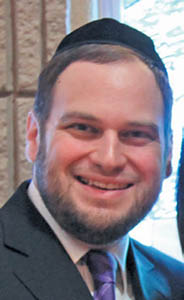
A number of years ago, a close rabbinic colleague called me and shared his deep frustration. The rabbi was officiating at a funeral where the family dynamics were complicated. Those very close to the family were aware of the difficulty while others were completely unaware. After the funeral, an individual approached the rabbi and scolded him for starting the service 20 minutes late. The gentleman explained that the rabbi needed to be more thoughtful of the people who came to the funeral in the middle of the day and needed to return to work. The rabbi responded by thanking the individual for his feedback and wishing to see him at happier occasions. My colleague explained to me that he was so very frustrated by the gentleman’s comment. Two of the children of the deceased were estranged from each other for years. Upon meeting in person, the rabbi had to spend a significant amount of time speaking with each of them individually so that they could sit peacefully in each other’s presence at the funeral. Naturally, the rabbi was not going to reveal those confidential details to the person who rebuked him. Very often we make assumptions about people and situations that are off base. While one may have thought the rabbi was completely careless, quite the opposite was true. Things are not always the way we see them. Yet sometimes it appears they are.
A safe approach is to assume that there is more to the story than what meets the eye. For example, there are situations where we may see someone act in an outright abhorrent way. While we may be deeply disappointed by their actions, it is possible that the person is struggling in some area of their life, which caused the behavior to occur. When we see someone act in an unfortunate way, we may want to give them the benefit of the doubt, but also understand that we don’t know their whole story, only that which we see before us. None of us want to be defined by our negative actions.
The pasuk in Parshat Kedoshim says that we mustn’t hate our fellow Jews in our hearts. This means that even though at times we may be disappointed in a person’s behavior, we should never allow ourselves to let disappointment turn into anger and then turn into hatred. Giving one the benefit of the doubt is a most important lesson, although it is difficult. Rabbi Yitzchak Elchanan Spektor of Kovno recalled a secretary of his whom he referred to as a kanai, someone who professed piety and held others in contempt if they fell short of his expectations. He continued that the difference between himself and the kanai was like the difference between a person who keeps a clean home and a cat. Both the person and cat hate mice. The cat would like mice to be present so that he could catch them. The person, however, does not want the mice to be present at all. “I daven that there should not be any sinners!” said Rav Spektor, but my secretary hopes that there are sinners so that he could hate them and chastise them.
We all have certain things about us we would like to change. There are times when we find the behavior of others reprehensible. Although we may be correct, we must force ourselves to look at them in an unfortunate light. We should feel bad for them that they apparently don’t know how to do the right thing. With this attitude in mind we can avoid causing hatred among our people. During this introspective period of Sefira, let us strive to see the best in each other.
By Rabbi Eliezer Zwickler
Rabbi Eliezer Zwickler is rabbi of Congregation AABJ&D in West Orange, New Jersey, and is a licensed clinical social worker in private practice. Rabbi Zwickler can be reached at [email protected].













